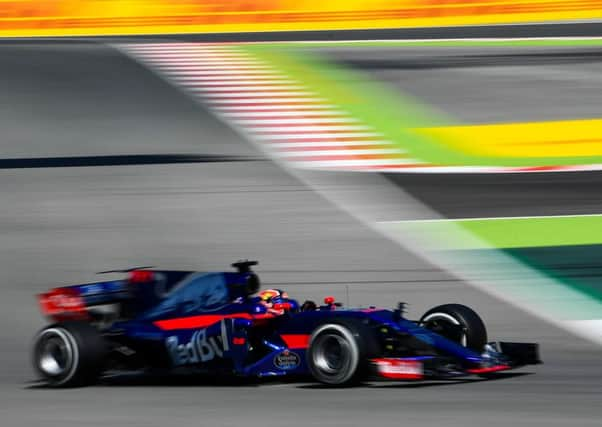Trevor Cattle: What if you ran a firm like an F1 team?
This article contains affiliate links. We may earn a small commission on items purchased through this article, but that does not affect our editorial judgement.


You may think that comparing F1 success to business success is like comparing apples and pears – F1 is a sport, it’s only really visible on certain weekends and a team’s success or failure is known after a few hours on a Sunday afternoon. Besides, the best car/driver combination always wins and generally that’s the team with the most resources.
Advertisement
Hide AdAdvertisement
Hide AdAs an avid F1 fan, I would say that the driver is only one component of a successful team and that all the money in the world cannot guarantee a competitive car. Winning depends on hundreds of people all working together to produce the very best of each of the component parts required and, here’s the important part, working together to ensure that each individual component works in harmony with each other to overcome the opposition.


If the aero and chassis team do a great job but the power unit produces less than your competitors, then the car will only be, as proclaimed by Fernando Alonso, the fastest in the corners; it won’t win races. In turn it won’t win the championship and ultimately the cameras turn to another team and sponsors don’t like that.
I’m not going to try to map the individual components from F1 to business; I’m trying to highlight the concept of your business only being as strong as the weakest link.


Now this isn’t a new concept, but if you think about an F1 car and the tangible output from the F1 team being your product or service, then things start to get a bit more interesting. Using a sub-standard power unit in F1 will guarantee failure – similarly, it doesn’t matter if your marketing department sells an amazing experience to potential customers, if the actual experience isn’t on-par, then you won’t win customers at the rate of your competitors who’s whole end-to-end experience is consistently excellent.
The competitive pecking order is far more publicly visible in F1. People can see from the individual races and championship results who’s on top. Fans know who’s got the best power unit, the best aero package, the best chassis, the best pit stop crew, make the best strategy calls etc.
What if you could see how you stacked up against your competitors in a few hours on a Sunday afternoon? How do you think you’d fare?
Advertisement
Hide AdAdvertisement
Hide AdYour product or service must be better than your competitors in order to increase your market share. To achieve that you have to ensure that all the individual components of your business are better than your competitors and that they are all working in harmony to give the best possible experience to your customer.
Even if you have a successful business, you can’t rest on your laurels. The world is constantly changing; customers demand more digital engagement and if your competitors keep innovating then you must too. Having the agility to adapt quickly to market changes is paramount.
McLaren are one of the most successful teams in F1 but have been close to the back of the grid for a good few seasons. The obvious problem is the Honda power unit, but if they could improve that overnight, would they be at the front of the grid? It’s tough to say for sure, as just upping the performance in one area could highlight deficiencies in other areas and, as a whole package, the current in form teams may still be on top.
I believe that some of the principals used by F1 teams could be, and in some businesses have been, adopted to maintain a competitive edge:
• A culture that understands that everyone and everything needs to work together to succeed
• Analyse data to understand where problems lie and where to focus resource on
• Constantly monitor your competitors and copy or improve the good parts
• Embrace a continual improvement culture. Small incremental improvements add up
• Trevor Cattle is CEO and founder of Edinburgh-based enterprise architecture firm Tech Enabled